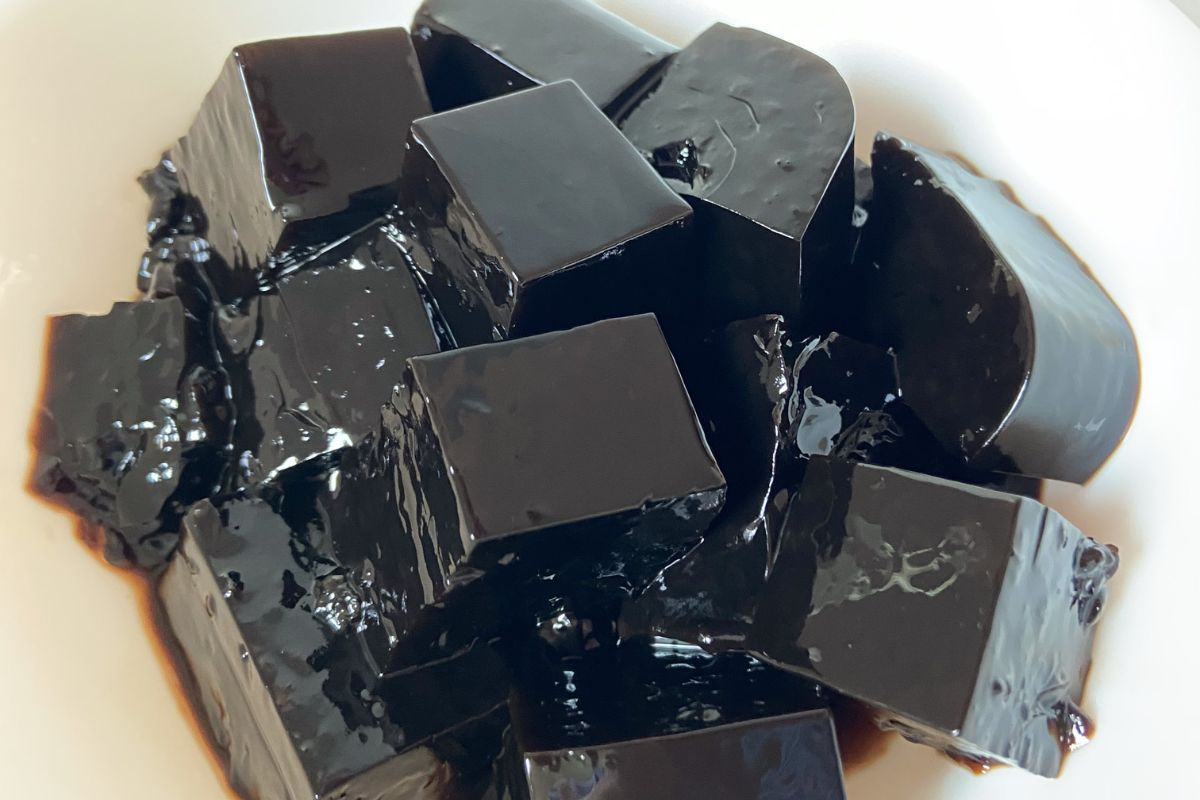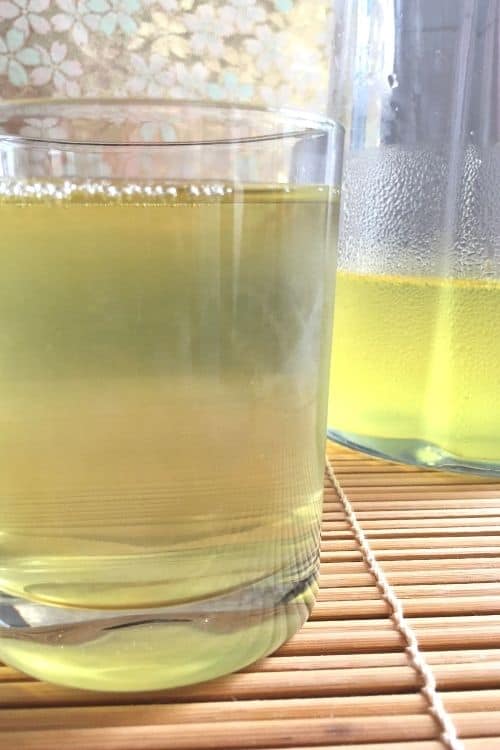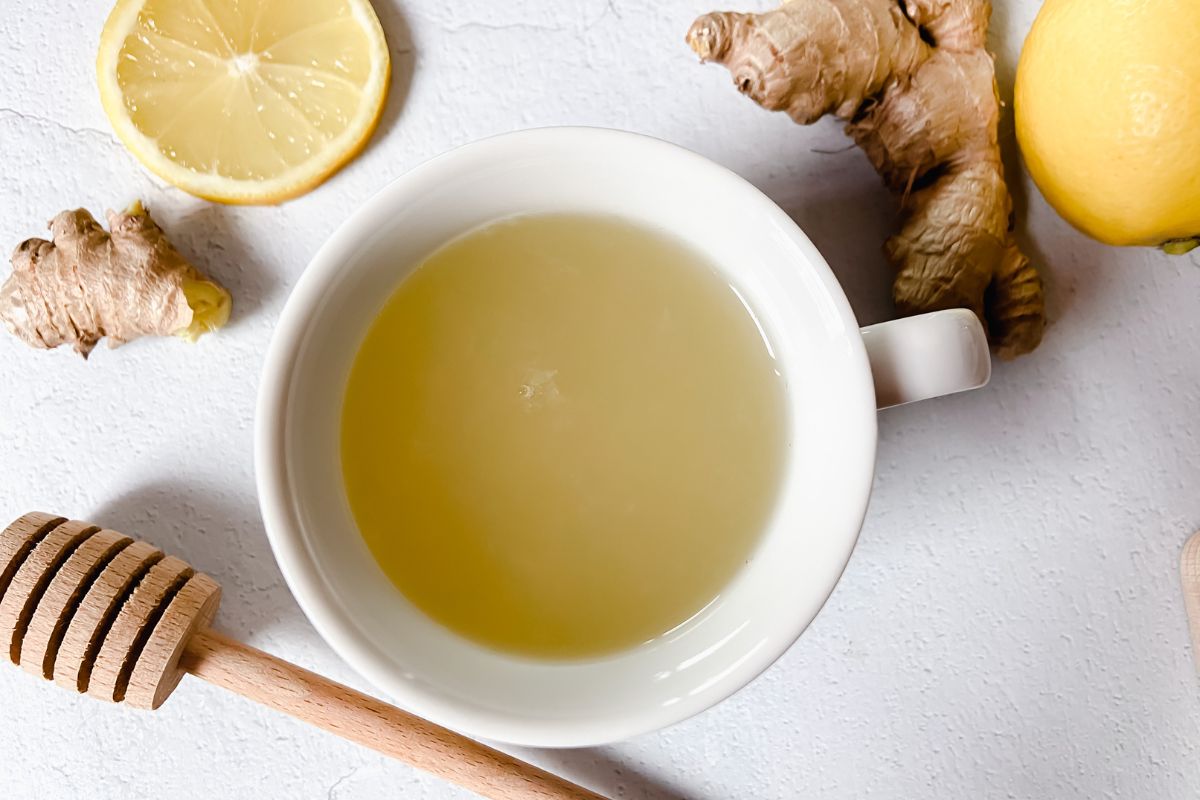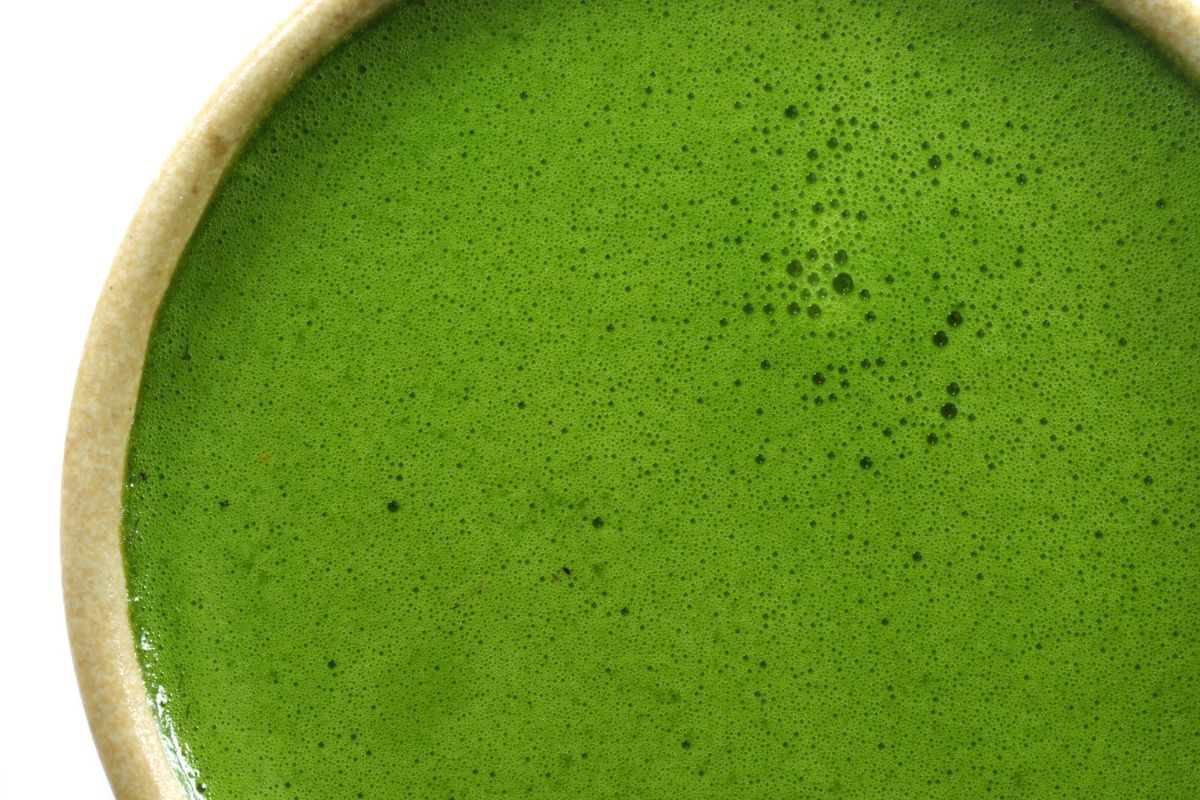Is herbal tea the same as green tea?
Herbal tea and green tea are two of the most popular types of tea.
Do you wonder what’s the difference between them?
This green tea vs. herbal tea post will cover what do they have in common and their differences, so you’ll know what to choose according to your preferences.

Green tea and herbal tea are both beverages made from infusing plants.
Both have also been highly appreciated since ancient times for their taste and beneficial effects, so, it’s no wonder that some people confuse the two.
But don’t worry, if you’re wondering whether or not herbal tea and green tea are the same you’ve come to the right place: they are not the same thing.
Let’s see what are the differences between them and most importantly, which one may be a better match for you.
Is green tea and herbal tea the same thing?

The short answer: no, green tea and herbal tea are different types of tea.
Green tea is made from the Camellia sinensis plant (also known as tea plant), while herbal tea can be made from a wide variety of plants.
Examples of popular herbal teas are peppermint tea, holy basil (tulsi tea), sage tea or lavender tea.
In the tea world, only teas that are made from the Camellia sinensis bush are considered true tea.
This includes green tea, black tea, white tea, and oolong tea, but not herbal tea.
So, herbal teas are not technically true tea but tisanes.

Differences between green tea and herbal tea
We’ve seen that green tea and herbal tea aren’t the same because they’re made from different plants.
Now, what does it mean for you?
Since “herbal tea” is a very wide category that can include everything from chamomile to palo azul tea, there’s a huge range in the taste, aroma and health benefits they offer.
But still, let’s take a closer look at some key differences between green tea and herbal tea in general:
Ingredients
This is obviously the key difference: while green tea is made from the Camellia sinensis plant, herbal tea is made from other kinds of plants (single or blended together).
Any infused drink that doesn’t come from the tea plant is considered “herbal tea”, whether it’s made from herbs, flowers, tree bark, fruit, spices, grains or beans.
Processing
Once picked, green tea leaves are quickly heated to stop oxidation. This is what gives them their characteristic dark green color.
On the other hand, herbal teas are usually not oxidized but only dried. Some are also fermented (like rooibos tea from South Africa), while other go through a roasting process.
There are herbal teas that can also be prepared from fresh ingredients.
Taste
One of the most important differences for the person who is going to drink the tea is obviously the taste.
While there are many types of green tea and all have their peculiarities, green tea has generally a more grassy, slightly bitter flavor.
Herbal teas a bright range of flavors to choose from, depending on what plants they’re made from.
There are really sweet ones (like stevia infusion), tart ones (like hibiscus), flowery teas and many others.
Caffeine content
Green tea, as any other tea type that comes from the tea plant, contains caffeine. On the other side, most herbal teas are naturally caffeine-free. There are a few exceptions though: some herbal teas from South America, like yerba mate or guayusa, contain caffeine.
Preparation

This is a important issue to consider to enjoy a nice cup of tea.
The preparation of herbal tea normally asks for fresh boiled hot water (some sorts are even brewed for a couple of minutes in hot water).
Green tea on the other side should be prepared at a lower temperature to avoid the tea leaves getting burnt and too bitter.
Health benefits
Both green tea and herbal tea are considered to be healthy beverages: they are practically calorie free while they may provide some beneficial antioxidants.
Green tea is for example especially rich in catechins.
Other herbal teas offer a wide range of health benefits depending on the plant they come from. For example, ginger tea contains gingerol, hibiscus tea is rich in flavonoids.
Since every type of tea may have its unique beneficial properties but also some downsides to consider, it’s better to research a little about the tea you’re drinking.
Here are some sources I like: 1, 2, 3 (in case of doubt, consult with a healthcare professional).
Price
In most cases, herbal tea is cheaper that green tea because non-tea plants tend to be less labor-intensive to produce and process than traditional tea.
Herbal or green: How to choose the right tea for you
Now that we’ve seen some of the main differences between green tea and herbal tea, it’s time to find out which one is the best for you:
Other questions related to green tea vs herbal tea
Up to date, I haven’t found any herbal tea that makes a tea with green color (please let me know if you know of any!).
As far as I know, you can get the greenest cups of tea when using matcha, gyokuro or other green tea types that are grown shaded (here you can read more about how to get green tea to get a bright green color).
Otherwise, many herbal teas give a yellowish tea liquor even when the loose leaf tea looks green (like for example in the case of mint tea)
Yes, you can mix any sort of tea with any other sort.
The name for tea where there is more than one type or element in it is called “blend” and there are herbal blends that contain green tea.
Just take into consideration that different types of tea sometimes need different steep times and water temperature, so some combinations where the different ingredients require very different steep conditions may not be ideal.
No, even if white tea is less processed than other real tea types, it still comes from the tea plant (Camellia sinensis). So white tea is not a herbal tea.
Earl Grey is a black tea flavored with oil of bergamot, so it’s not a herbal tea but a black tea blend.
I hope this post has helped you understand the main differences between green tea and herbal tea.
Which one will you choose today?
If you would like to read more about a specific type of tea, here you can find a to-the-point guide on different tea types (there is an alphabetical index so you can find what you’re looking for easily):






